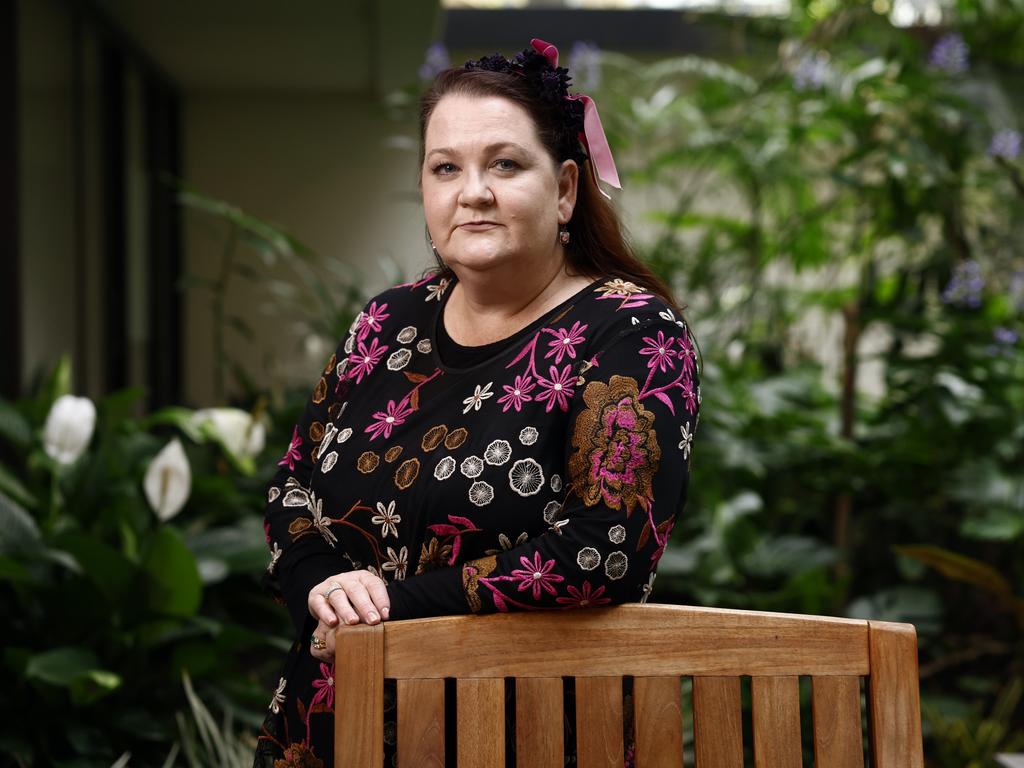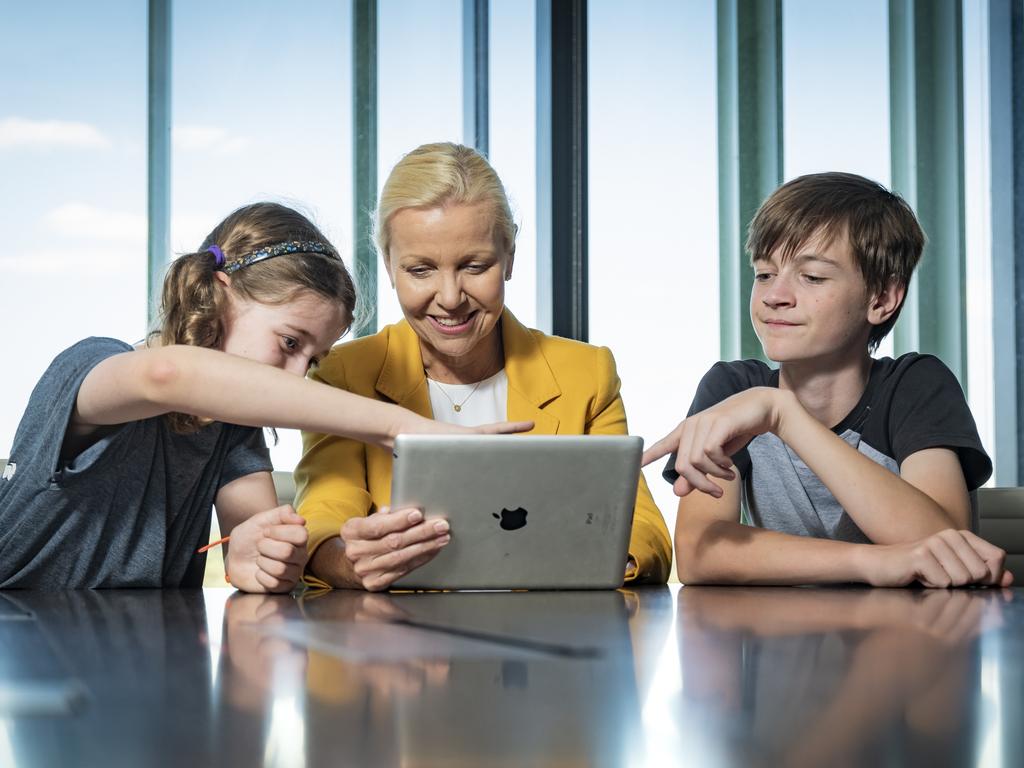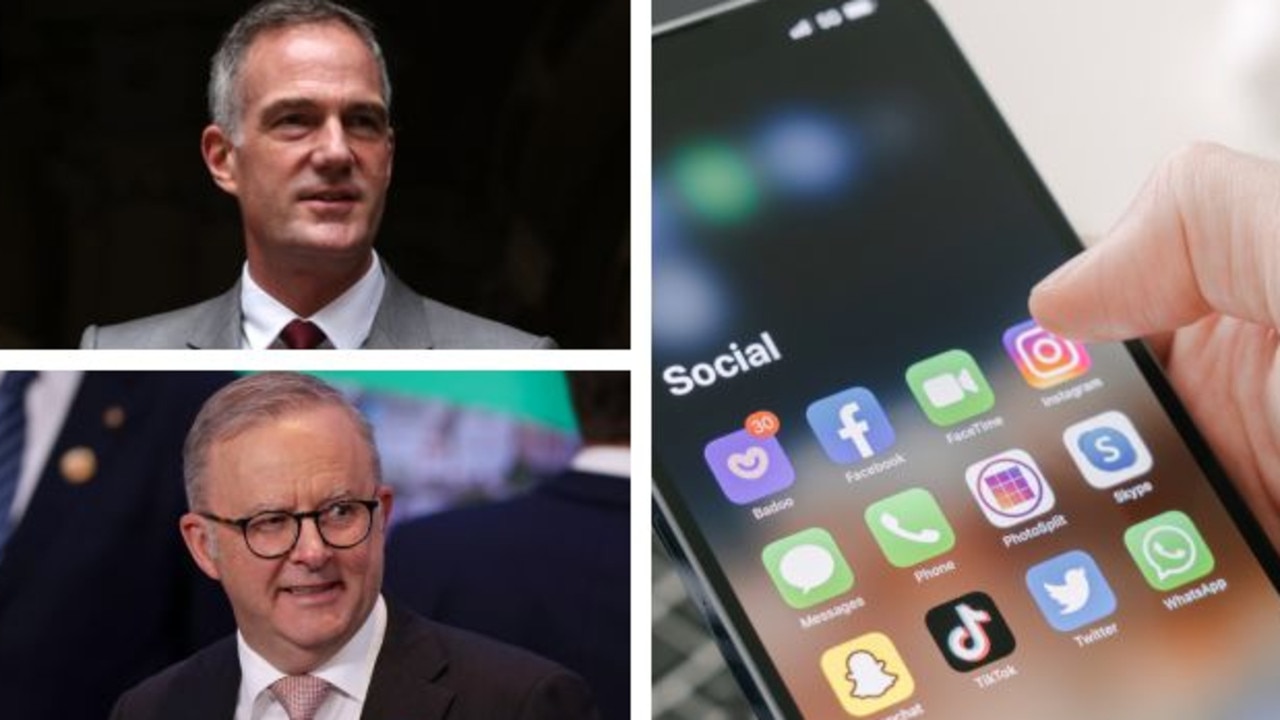‘Insidious’: Teen bullies weaponise music platforms in disturbing cyber-bullying trend
Australia’s online safety watchdog has set up a new site to educate parents about cyber-bullying, as bullies find disturbing new ways to harass teens over the internet — including creating songs to taunt their victims.

National
Don't miss out on the headlines from National. Followed categories will be added to My News.
Bullies are finding disturbing new ways to harass teens over the internet, including creating songs to taunt them and creating up to 60 accounts to target someone, with Australia’s online safety watchdog setting up a new site to educate parents about cyber-bullying.
eSafety Commissioner Julie Inman Grant has intervened in nearly 2700 cyber-bullying complaints in the last 12 months alone, a 37 per cent increase from the previous year, with those “actionable” complaints a drop in the ocean given 90 per cent of reports are resolved ‘informally’ by social media companies.
Sign the Let Them Be Kids petition here
“Are things falling through the cracks? Absolutely, and that’s precisely why we exist – because there’s that inherent imbalance that exists between the big tech behemoth and the everyday person,” Ms Inman Grant said.
It comes as young perpetrators “weaponise technologies in much more insidious ways,” she warned, including via a practice known as “phoenixing”, in which a bully or group of bullies create 50 or 60 different social media accounts to target their victim.
“As each one is reported and taken down, another one will rise up the ashes to continue that incessant and consistent targeting of that child,” she explained.

“Just to give you a couple of examples, at one point, we had a young person creating a song and lyrics on Spotify as a way to target a child.
“The folks at Spotify were absolutely shocked at what had happened on their platform.”

The Commissioner has intercepted multiple instances of children using a range of music sharing platforms to harass others, including by creating public playlists with titles urging the target to self-harm and using humiliating photos for the thumbnail.
In these cases, the playlists are then curated with song titles that when read together act as a threatening message, or feature songs that contain violent and sexually violent lyrics.
Her office has worked with the NSW government and NSW Chief Behaviour Adviser Donna Cross to develop a virtual dashboard for educators and families that offers teaching resources, practical advice for parents on how to monitor their children’s online activity, and information on how to report cyber-bullying.
Links to the Spotlight on Cyberbullying site will appear in school newsletters and the content hosted on it referenced in the classroom.

Mum Emma Mason, whose 15-year-old daughter Tilly Rosewarne took her own life after a relentless campaign of bullying over Snapchat has long advocated for a one-stop-shop toolkit that parents, and especially teachers, can access instantaneously.
She urged schools to link to the resource on every school website and in every email signature.
“(Cyber-bullying is) really about having godlike technology in the hands of people whose brain synapses haven’t fully developed,” she said.

“Most of us parents don’t know – even those with the best intentions – what our kids our doing online, and the technology helps us not know. With Snapchat for example … it’s gone in a puff. The harm isn’t gone, but the evidence it ever happened is.
“With Tilly’s experience, we didn’t even know there was an eSafety commissioner, never mind that she could possibly help us.”


Professor Cross stressed the new resource is “evidence-based” and is sorely needed, with half of all children in Australia having experienced “online harms” in the last six months alone.
Anti-cyber-bullying slogans of years past such as ‘if you wouldn’t say it, don’t send it’ in practice gave bullies “permission” to harass their real-world victims in cyberspace, she said.
“Almost 80 per cent of children who are bullied online are also experiencing face-to-face bullying,” Professor Cross said.

“Unfortunately, there are lots of resources that have been developed and are being promoted to schools, that are not necessarily evidence-based and are not giving teachers practical actions that will make the most difference … and some may have actually increase harm.”
NSW Education Minister Prue Car said the collaboration was part of a suite of measures her government is taking to “prioritise young people’s online safety”, alongside a cyber-focused curriculum and the school mobile phone ban.
“These new resources will help families, who may struggle with how to help when their children become victims of cyber-bullying or other harmful online behaviours,” she said.
More Coverage
Originally published as ‘Insidious’: Teen bullies weaponise music platforms in disturbing cyber-bullying trend









